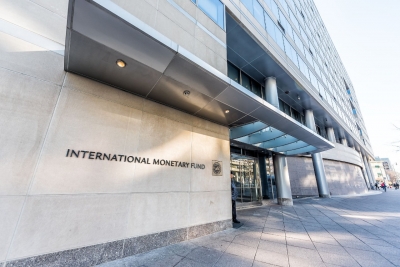Colombo: The International Monetary Fund (IMF) has said that against the
uncertain global backdrop, the Asia-Pacific remained a dynamic region with China’s recovery and the resilient growth in India.
Krishna Srinivasan, Director of Asia and Pacific Department, IMF who represented the<br>visiting IMF team in Colombo analyzed the global and regional outlook and stated that 2023 looks to be a challenging year for the global economy.
“Global growth is expected to decelerate and bottom out in 2023, as rising interest rates and Russia’s war in Ukraine weigh on activity. Global inflation is easing but remains stubbornly high. And banking strains in the US and Europe have injected greater uncertainty into an already complex landscape,” he said.
He said against this uncertain global backdrop, Asia-Pacific remains a dynamic region.
“Despite weakening external demand and monetary tightening across major economies<br>around the world, domestic demand has so far remained strong. Growth in Asia and the<br>Pacific is projected to increase this year to 4.6 per cent, up from 3.8 per cent in 2022. As a result, the region would contribute around 70 per cent to global growth.
“Asia’s dynamism will be driven primarily by the recovery in China and resilient growth in India, while growth in the rest of Asia is expected to bottom out in 2023, in line with other regions,” the IMF Asia-Pacific head said.
About Sri Lanka’s economic crisis, the IMF representative said that island’s<br>economy is expected to contract by 3 per cent in 2023 but would register a modest growth of 1.5 per cent in 2024.
The IMF team observed that Sri Lanka has been facing a severe crisis because of past policy missteps and back-to-back economic shocks.
However, it commended Sri Lanka’s effort to come out of the crisis and said that India, Japan, and the Paris Club forming a Creditors Committee following country’s request for a debt treatment was a positive sign.
“The government is making good with all creditors and also three countries India, Japan and Paris Club teamed together to form a creditors committee and China decided to be an<br>observer to the group. So that is a positive development. Similarly the country’s authorities are negotiating with good faith with their private creditors. So, there is little progress,” the IMF team stated.
Following the Easter Sunday attack and Covid 19 pandemic – both which hit Sri Lanka’s<br>foreign remittances and tourism, and wrong policy decision making, Sri Lanka faced the worst ever economic crisis since its Independence. For the first time, it defaulted on foreign debts in April 2022. However in March 2023 the IMF Executive Board approved a 48-month Extended Fund Facility (EFF) of about $3 billion to back Sri Lanka’s economic policies and reforms and received an initial disbursement of about $330 million from the EFF arrangement.
The IMF team of 10 officials including Srinivasan and IMF Senior Missions Chief for Sri<br>Lanka, Peter Breuer are in Sri Lanka from May 11 to 23 a part of their regular consultations with the island subsequent to the nearly $3 billion EFF granted by the IMF in March this year.
–IANS


Comments are closed.